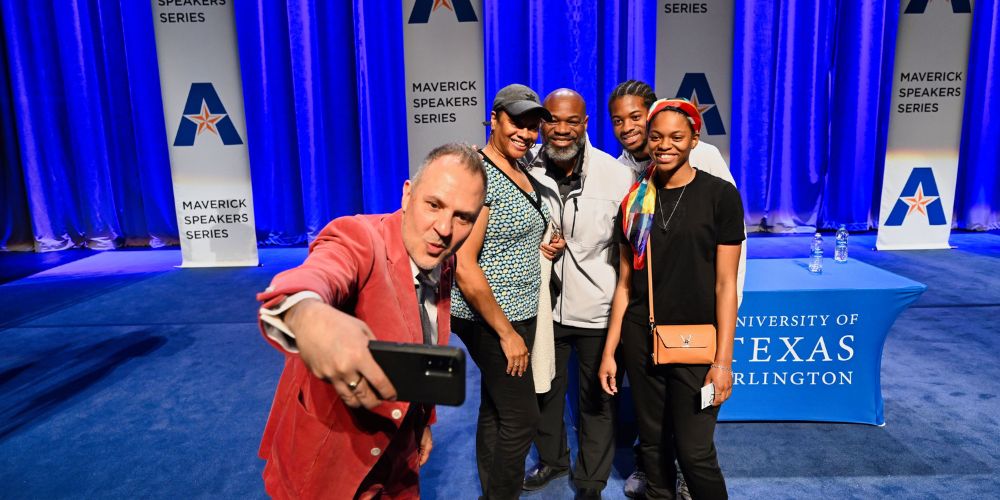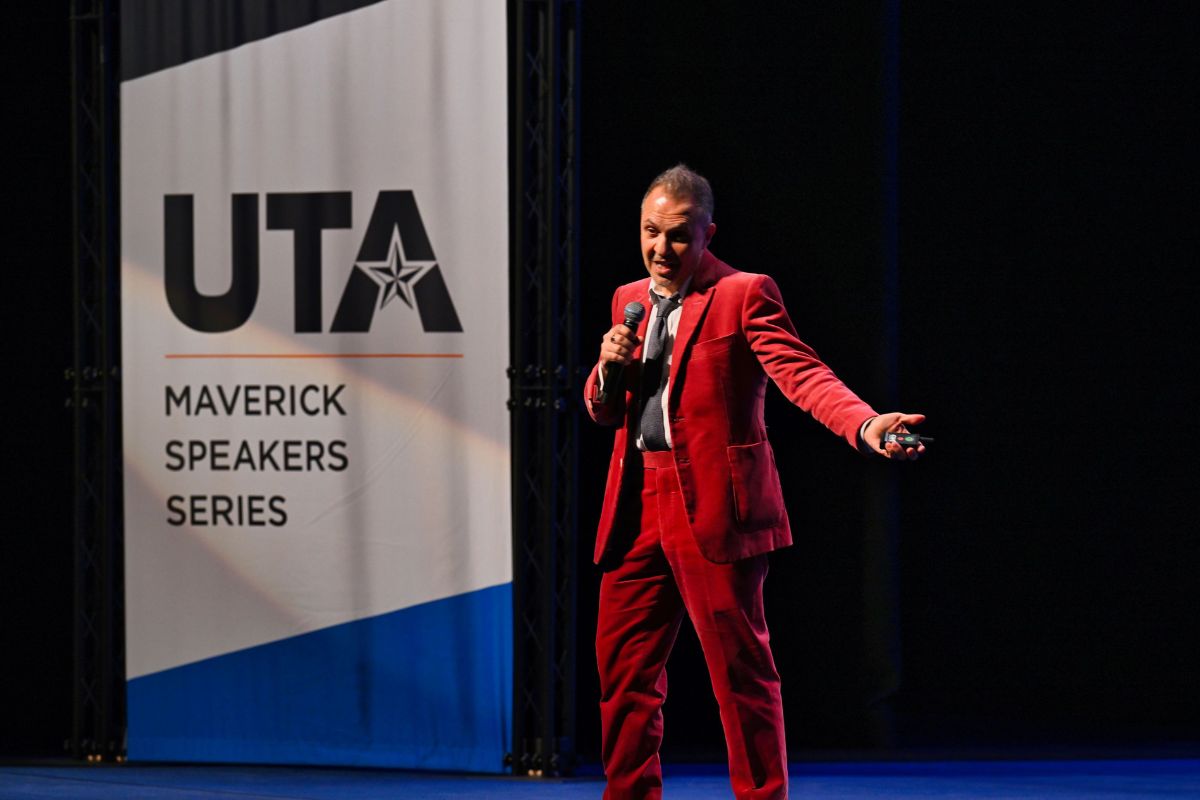In every photo, a story of compassion

Behind every photograph that Platon took, there was a story of human connection and empathy.
Muhammad Ali, the great professional boxer and civil rights activist, toward the end of his life told Platon during a photoshoot that he wasn’t as great as he said he was. Rather, real greatness was the impact he made on people’s lives.
“If we can get people to see themselves in the stories that we put forward, then we have a chance to achieve greatness,” Platon said.
The world-renowned and award-winning photographer took the stage at Texas Hall on Tuesday for the latest installment of the Maverick Speakers Series. His discussion, “Powerful Portraits,” focused on his powerful and famous portrait photographs—and the stories behind them.
Platon started his discussion by showing a portrait of a homeless woman in Russia. He recounted that he asked her if she had one wish, what would it be? She said she wished for Platon to be happy.
“Empathy is the secret ingredient for making a human connection,” Platon said. “We must not lose our capacity to dare to be kind to each other.”

Another portrait Platon showed was of a woman who lost her husband during the war in Iraq. In it, she wore one of his army shirts, which Platon said carried a heavy emotional weight—to retrieve the garment, she had to open the box she was sent with all her husband’s belongings for first time. Once the box was opened, she burst into tears. She realized her husband's clothes had been washed, and she couldn’t smell him one last time.
“Did you feel that? If you felt that, then something beautiful just happened” Platon said. “We all came to this room defined by our differences. But what we felt was compassion. That's the power of human connection.”
At the end of the discussion, Platon left attendees with a question.
“Are we to be bystanders like moths dancing around someone else’s flame?” he asked. “Or are we to be upstanders, and we light the darkness ourselves with our own torch of compassion?”